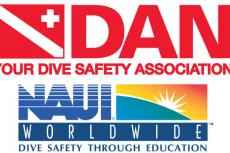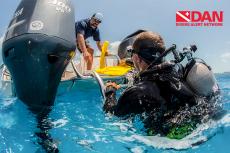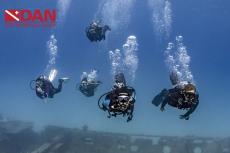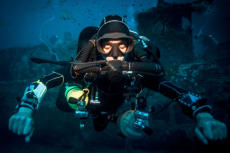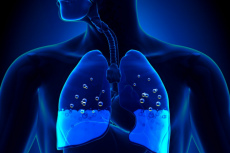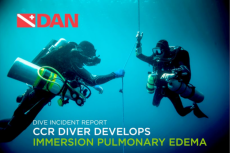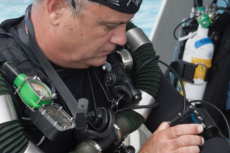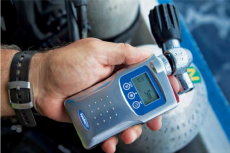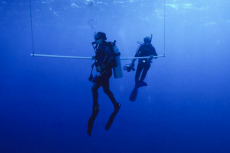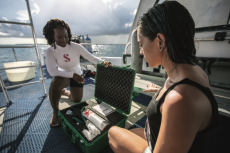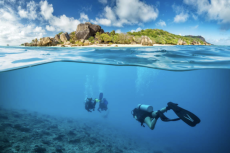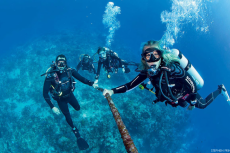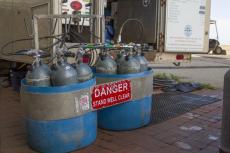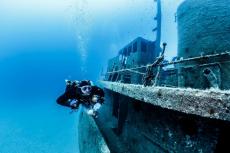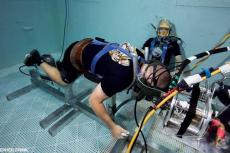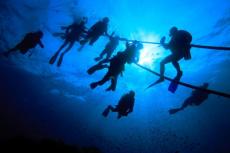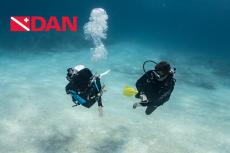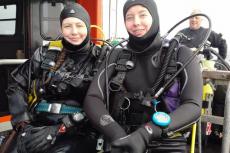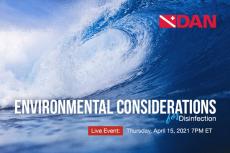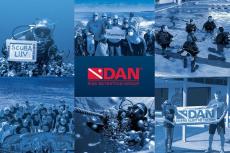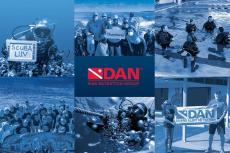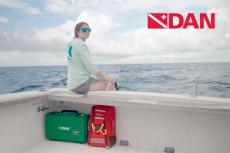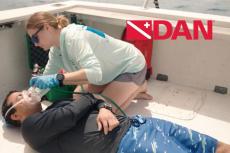Advanced First Aid for Divers
It is an unfortunate reality that divers who find adventure further afield have to prepare for a wider range of emergencies than those who stick close to home. By the time it is obvious that an ill or injured person needs help, symptoms may have progressed beyond what untrained rescuers can contend with.
These situations are especially daunting in remote locations. Learning how to respond to some of the most common medical emergencies before your next offshore trip or diving expedition could help you save a life. Do you know how to identify the early warning signs of these common emergencies?
Gastrointestinal emergencies
First aid is not known for being glamorous or exciting, and neither are gastrointestinal (GI) emergencies. Many GI issues are often ignored: People suffering from them may be too embarrassed to reveal their symptoms or may have hopes of the issues resolving on their own.
Severe GI distress can lead to serious medical issues via dehydration or malnourishment if the victim is miles, or even days, away from a hospital. Even in areas where the water is safe to drink, changes in flora and fauna, routine and activity levels can be enough to cause discomfort or diarrhea.
The most important part of dealing with GI issues is determining whether symptoms warrant advanced care or can be left to resolve with time. Abdominal pain that is accompanied by a fever of more than 102°F or lasts for more than 12 hours should be watched closely and brought to the attention of a medical professional.
If these symptoms are accompanied by specific localized pain, dizziness, rapid breathing, lightheadedness, sweating or anxiety, shock may have set in, and immediate medical help should be sought.
Seeking medical care is also recommended to women for whom pregnancy cannot be ruled out or any individual with nausea, vomiting or diarrhea lasting more than 24 hours.
Barring these indicators of more severe issues, it is reasonable to monitor a person with gastrointestinal distress and encourage them to eat bland food items like bananas, rice, applesauce or toast exclusively until symptoms resolve. Anti-diarrheal medications can be helpful for short-term management of symptoms, while caffeine and alternating hot and cold liquids can help alleviate constipation.
Cardiovascular emergencies
Whether you are a cardiologist or a lay provider, being a hero to someone having a cardiac emergency may be as simple as sticking to your training. Chest pain of any type is cause for a prompt response, and this holds doubly true in a remote environment. If chest pain is accompanied by sweating, cool or pale skin, shortness of breath, dizziness or anxiety, it could indicate the onset of a serious condition.
Angina (pain due to inadequate cardiac blood flow) and myocardial infarctions (heart attacks) can be indicated by these symptoms, although not all patients with these conditions will show all (or even many) of these symptoms. This chest pain, which may be described as crushing or squeezing, is commonly preceded by overexertion or stress, and can be accompanied by jaw, arm, abdominal or back pain.
Because of the severity of undiagnosed cardiac issues and the disparity of presentations between patients, any otherwise unexplained upper-body pain should be considered a possible sign of cardiac distress.
The first step in responding to a potential heart attack is to activate EMS and encourage a conscious, breathing victim to rest in a comfortable position. If the person takes medication, such as nitroglycerin, for a known cardiac condition, it is appropriate to assist that person in taking their medication.
Medications should be taken according to a physician’s instructions and prescription medications should only be given to those they are prescribed to. Even if symptoms resolve, stay with the victim and continue to monitor them until advanced medical care arrives.
Respiratory emergencies
Injuries and emergencies that involve the airway are often the most serious and require the fastest response. Individuals who are unable to breathe can suffer serious brain injuries or death in a matter of minutes if appropriate intervention is not made.
Common causes of respiratory emergencies in the field include anaphylaxis (a severe allergic reaction), asthma, airway obstruction and lung injuries. Divers face the risk of lung injury any time they engage in breath-hold diving or breathe compressed air, and people experiencing respiratory distress following a dive should always be evaluated for a possible lung injury. Lung injuries are very rarely manageable in the field — if you suspect that a diver has a lung injury the best response is to administer oxygen and seek medical care as rapidly as possible.
In the event of an airway obstruction caused by foreign bodies or tissue injuries, rescuers should refer to their CPR training for up-to-date response protocols that match their level of training. Anaphylaxis can also result in an airway obstruction if an individual with a serious allergy consumes, inhales, touches or is injected with a particular allergen.
If this allergen can be identified, separate it from the injured party immediately. If anaphylaxis occurs and the individual experiences difficulty breathing, it may be appropriate to assist them in administering epinephrine, often found in a commercially available auto-injector and likely kept on-hand by the individual with the allergy. Following epinephrine administration, victims should take an antihistamine (Benadryl or similar) and be transported to a healthcare provider for evaluation.
If a person is not adequately breathing on their own, oxygen administration is recommended. If the individual is not breathing at all, perform rescue breaths and immediately evacuate the person. Even if symptoms resolve, any person who experienced difficulty breathing should be evaluated by a medical professional, as symptoms may resume.
For more information on responding to medical emergencies, visit: DAN.org/Health
- Log in to post comments





